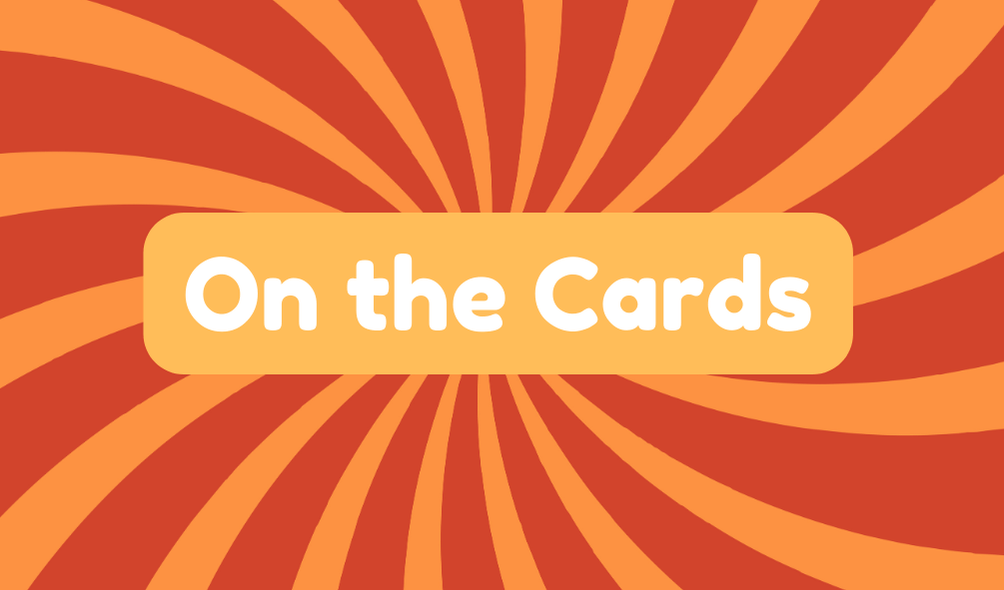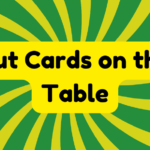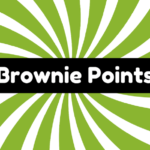The phrase "on the cards" means that something is likely to happen in the future. It originated in the 1800s, stemming from various cultural views on fate and chance. For example, you might say, "A vacation is on the cards this summer," implying it's a strong possibility. While it's common in British English, Americans often say "in the cards." This expression remains relevant today, reflecting our hopes and speculations about upcoming events. However, relying too much on idioms can cloud your judgment, so it's wise to balance optimism with realism. There's more to uncover about this phrase's usage and significance.
Synonyms
When you say something is "on the cards," you're fundamentally communicating a notion of inevitability similar to a handful of synonyms. Understanding these alternative phrases not only broadens your vocabulary but also sharpens your ability to express future predictions. Here are three notable examples:
- In the pipeline – This suggests something is currently in progress and likely to happen soon.
- In store – This phrase indicates something is anticipated or expected, often carrying a hint of surprise.
- In the offing – This implies that an event is brewing and expected to present itself shortly.
Example of Sentences
Understanding how to use the phrase "on the cards" effectively can enhance your communication about future possibilities. This idiomatic expression often suggests that something is likely to happen, especially in your life's context. To help you grasp its use, consider these examples:
- "A job offer could be on the cards if you ace the interview."
- "Is a vacation on the cards for your family this summer?"
- "Changes in your favorite café's menu are on the cards."
These future predictions can shape conversations when you articulate your thoughts clearly. While it's an exciting concept, remain skeptical—just because something's "on the cards," doesn't always mean it's set in stone. Embrace these expressions while keeping a realistic perspective.
Origin
The origins of the phrases "in the cards" and "on the cards" reveal interesting nuances in language used across cultures. They both highlight the historical significance of how language evolves over time. The expression first appeared in the 1800s, but its roots trace back to early references like Charles Churchill's poem from 1764. You see, these phrases aren't just casual sayings; they resonate with the long-held human fascination with fate and fortune. In American English, "in the cards" prevails, while British speakers prefer "on the cards." This divergence reflects localized adaptations of a shared concept. Understanding these phrases can spark curiosity about how language shapes our perceptions of future events, offering deeper insights into cultural perspectives on destiny.
Collocations
Exploring collocations with the phrase "on the cards" reveals how it seamlessly integrates into various contexts, enhancing communication. You might come across these common examples:
- "A promotion on the cards" – suggesting career advancement is likely.
- "Change is on the cards" – indicating that transformation is inevitable.
- "Travel is on the cards" – foreseeing an adventure ahead.
These collocations with "cards" create idiomatic expressions that convey inevitability, helping you articulate future possibilities. However, it's crucial to remember that saying something is "on the cards" doesn't guarantee it will happen. A healthy skepticism about what the future holds can balance the optimism these phrases inspire. By understanding these collocations, you can communicate more effectively while maintaining a realistic outlook on what's possible.
How to Use in Everyday Language
You can often sprinkle the phrase "on the cards" into conversations when discussing potential future events or changes. It's a great way to suggest that something seems likely to happen, whether you're chatting about a new job opportunity or lifestyle shifts. Using contextual usage makes your comments more relatable, transforming ordinary discussions into engaging exchanges. For instance, you might say, "A new product launch is on the cards next quarter," which clarifies your perspective. However, it's essential to remain grounded; not every prediction will come true. While using conversational phrases enhances dialogue, stay open to outcomes that differ from your expectations, as innovation often springs from the unpredictable.
Why Is It Still Relevant Today?
In today's fast-paced world, many people find themselves turning to phrases like "on the cards" to express potential futures and set expectations. This idiom holds cultural significance, rooted in the human desire to predict outcomes. While it may seem whimsical, its modern usage exposes a deeper connection to our fears and hopes. You often hear it in discussions about career moves or relationships, reflecting our constant quest for insight into what's next. However, relying too heavily on such phrases can dilute our critical thinking. Recognizing the balance between prediction and reality is essential. Being aware of how language shapes our understanding can help you navigate possibilities with a more grounded perspective, pushing you to act rather than wait for fate to unfold.







